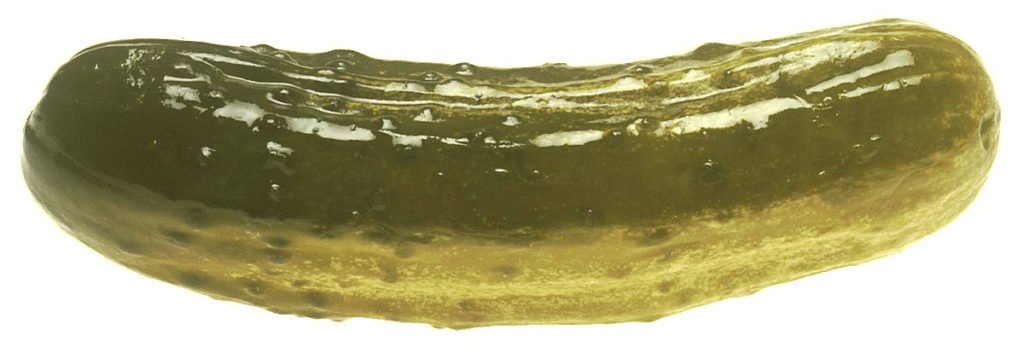Understanding “Pickled” vs. “Fermented”

Dictionary.com defines “pickled”
[pik-uh ld]
adjective
- preserved or steeped in brine or other liquid
Foods that can be pickled include meat, fruit, eggs, vegetables, and seeds. Food can be pickled in vinegar, including a “quick pickle”, like simply tossing something like cucumber slices with vinegar and seasonings and letting it sit for a few minutes to a couple of days. This is delicious! This is not fermenting, and it does not enhance the probiotic punch that fermenting provides.
Food that is submerged in a salt brine will ferment. For this discussion, let’s just talk about fermenting plants. Fresh vegetables come with good bacteria. Bacteria is not bad. Some of it is, but much of it is a good thing. You WANT good bacteria in your gut. Bacteria in your gut is the foundation of your immune system. You want a healthy colony of bacteria in your gut fighting for your strong immune system. That’s why fermented foods will change your life.
Making a brine, and submerging fresh vegetables will create an environment where the naturally occurring bacteria will flourish and grow. This will preserve the food, and enhance the flavors. Vegetables in a salt brine will eventually create their own vinegar. Vegetables can be fermented for a few days, to a few weeks, or even months. Shorter ferment times will be milder, longer times will create stronger flavors. Cabbage was fermented in brine and used for food on long journeys on the ocean before refrigeration was possible. Fermented foods have a long shelf life. Sometimes you will ferment things, and then move them to the fridge to stop further fermentation, but sometimes, like with sauerkraut, the fermentation can go on for months, even while harvesting some to eat along the way. My grand parents had a “pickle pot” on the the counter that had brine and assorted vegetables. Some would be removed and used, while adding new vegetables to keep the pot going. Not all vegetables ferment well…more on that in other posts. It’s a fun, good-for-you, learning adventure, that will improve your life by making your immune system strong and healthy.
A quick note about heat. Heat kills bacteria. Any process that heats your fermented foods higher than about 110 degrees risks killing the good bacteria you worked so hard to create. It is certainly fine to heat and eat fermented foods, you just lose the good bacteria. So enjoy it hot or cold, but remember to eat some that hasn’t been cooked. If you are buying fermented foods that are not refrigerated, like jarred sauerkraut or pickles, they have been pasteurized (heated) to make it shelf-stable, and the good bacteria is all gone. More and more stores are now selling “live” sauerkraut and pickles, but you will find them in refrigerated sections.